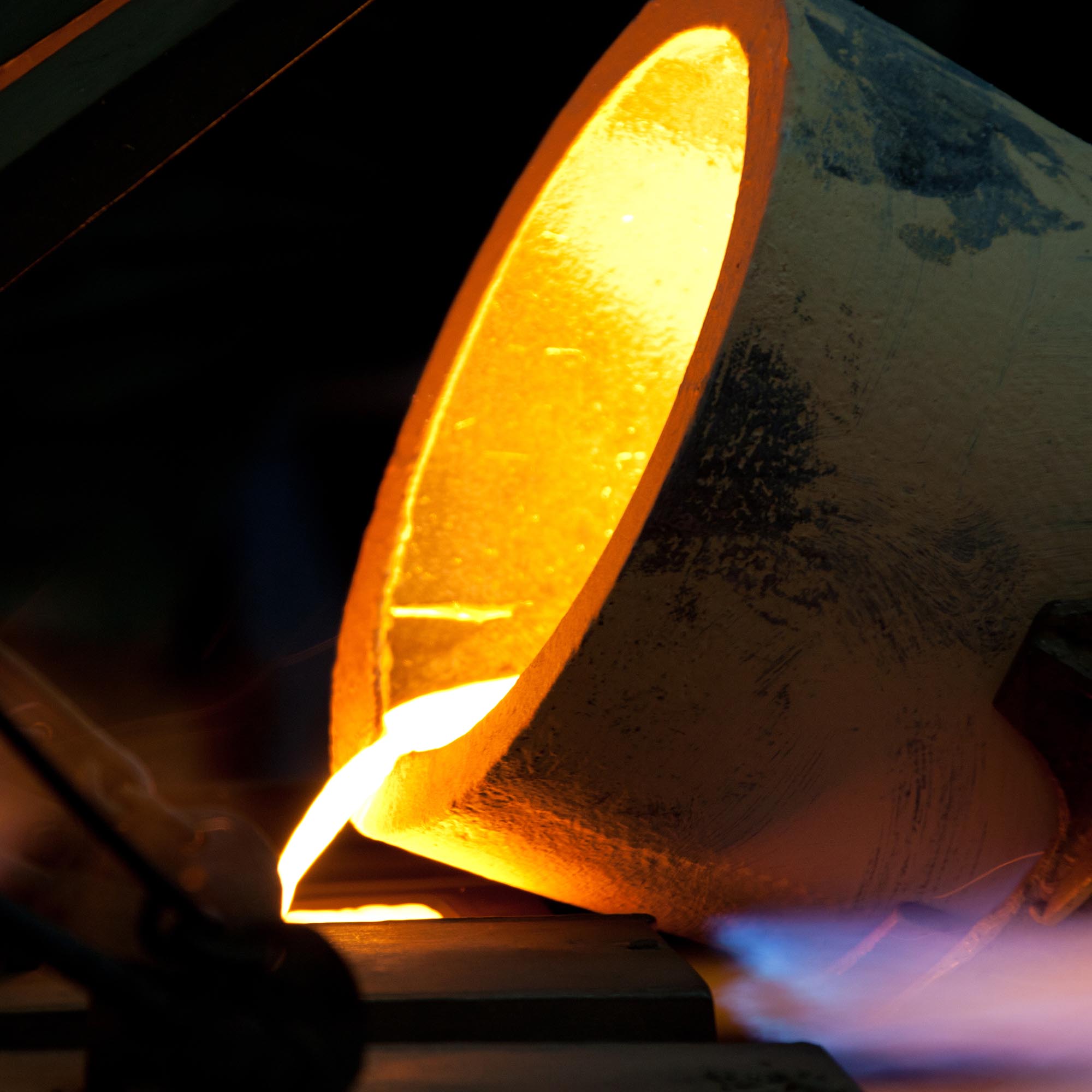Alloying Gold and Other Metals
Online
$125.00
$400 for two full-day sessions (optional kit $55 extra)
March 11-12, 2023
Day 1 Workshop 10 am-12 pm Pacific Time
Day 2 Open Studio 3 pm Pacific Time
In this workshop you will learn how to alloy metals to create compositions of gold, silver and copper alloys that fuse beautifully to steel. Alloying metals is a valuable skill that has broad applications across jewelry making. Creating alloys for fusing to steel allows you to create just the right mix of metals to achieve your desired creative effect. In this live online session, we will cover the basics of alloying, including how to determine the formula for a particular alloy and how to use a jeweler scale to determine the correct proportions. We will walk through the alloying process step by step.
You will learn to:
- Prepare a crucible and charcoal block for the alloying process
- Calculate formulas for gold, silver and copper alloys
- Weigh metals for creating gold, silver and copper alloys
- Alloy metals using proper torch control
- Gauge when a metal is completely alloyed
- Troubleshoot any problems with the alloying process
Skill Level
Students should be comfortable using a torch and should possess basic metal working skills, such as sawing, filing and forming. Students should be knowledgeable about safe practices in a jewelry studio.
Kit
Included in the workshop fee: course presentation handouts, and source sheets for purchasing materials and supplies
Student-provided Class Supplies
Note that the sources shown are merely examples. Many different vendors can be sourced for these products. In addition to the general list for tools and supplies needed for working with steel (see “Basic Tools and Supplies” below), you will need to provide the following supplies, materials and tools for this class:
- Jeweler scale—accurate to .01g. From Amazon and many other jewelry supply vendors
- 2 small (1-3/4”-2-3/4”) crucibles. From Otto Frei
- 2 small whip pinch tongs for the crucibles. From Otto Frei OR instead of crucibles and tongs, you may use a clean small hard charcoal block. From Rio Grande
- Borax powder. From grocery stores (sold as laundry cleaner such as 20 Mule Team Borax) or Amazon
- .999 fine silver casting grain, at least 1 ounce. From Rio Grande
- OPTIONAL Gold casting grain, if you want to create gold alloys, 1-2 pennyweight (dwt.) of 24k gold casting. From Rio Grande
- Copper chop—99.9% pure. From Amazon (Note: Instead of using chop, you may use thin copper sheet or wire that can be cut in to small pieces.)
- OPTIONAL Rolling mill to thin alloys into sheets in preparation for fusing to steel (Note: As an alternative, the alloys can be forged out to thin sheets using a hammer, a more labor-intensive process, but still effective.
Basic Tools & Supplies
For supplies, materials and tools that you will need to provide for all classes, please refer to the basic list for tools and supplies needed for working with steel in the pdf below. As with the list of class-specific supplies (above), many of these are items that you may have on hand. Note that the sources shown are merely examples. Many different vendors can be sourced for these products.
Basic Tools and Supplies for Working with Steel »1 in stock
